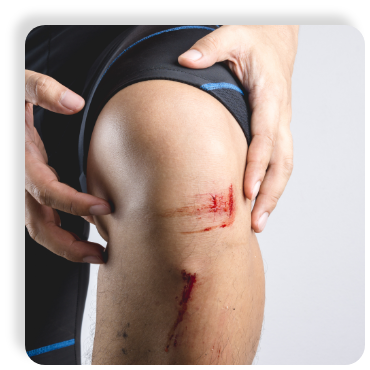

A chronic wound is one that has delayed healing. Some of the symptoms of a chronic wound include:
Swelling – chronic wounds appear swollen and red even after several days or weeks
Pain – if the pain in the wound persists or worsens weeks after the first time you noticed it, it might imply the wound is not healing. Normally, the pain needs to subside over time
Odor – a foul-smell from a wound means there are is dead tissue stalling the healing process and it needs to be removed to allow the wound to heal.
Fever – a fever may indicate a serious complication related to your wound. Therefore, monitor your temperature and get in touch with your doctor if it runs higher than 100 degrees Fahrenheit.
Discharge – milky, yellowish, or thick liquid oozing from a wound means there is an infection that can stop the healing process.
Bleeding – when a wound is healing, it scabs over and stops bleeding. If a wound is still bleeding after a few weeks, it could be a sign of a chronic wound.
If an ulcer or a sore persists with these signs after thirty days, it is likely a chronic wound that would need specialized wound care.
Chronic wounds can result in complications. Ensure you receive specialized wound care from our professionals at Shot Health.

